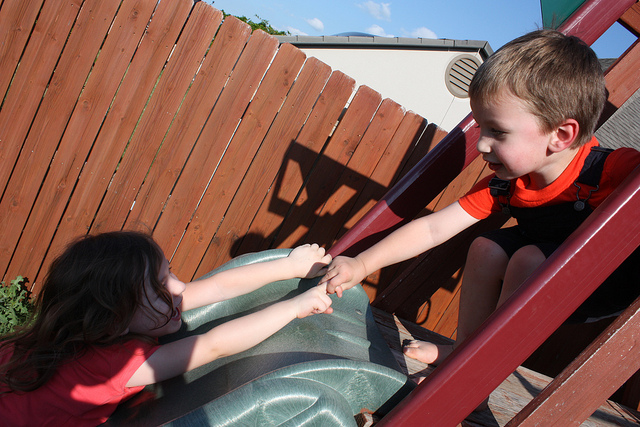Being concerned about others does not mean you forgo fulfilling your own needs, but that if you do help others there is mutual benefit. – Dalai Lama
What does that mean?
The quote starts out by reminding us that being concerned with others, and the action implied therein, isn’t supposed to be to the exclusion of our own needs.
It concludes that helping others generates a mutual benefit, which I read to imply that we are to look for ways to help others while also helping ourselves.
To me, this distinction is important, as many consider helping others to be a form of self-sacrifice. I believe this attitude causes some to discount the helping of others as being something which requires too much for them to do.
This need not be the case, as the quote implies. We can find ways of helping others and still help ourselves at the same time.
Why is being concerned about others important?
At some point, others were concerned about us. Whether it was as a small child or at other times in our lives, others have felt concern for us and taken action to help us. And that effort on their part made a difference in our lives. And it has probably happened more than once, perhaps even without your notice.
Whether it was the person who provided a helping hand when you first tried to walk, or the person who took the time to help you learn to write and to read, they were acting on their concern for you. But what did they get out of it? Satisfaction, pride, a paycheck, did it matter to you at the time? Or did you just need help?
We can also consider what we get when we help others. Many of the same things, right? We can get satisfaction out of helping others. We can find helping others is a source of pride. Other times, it might be part of our job. Even something as simple as mentoring a friend or co-worker because you know how and they don’t can bring a benefit to you.
This is part of what the quote is getting at, the interrelation between helping others and getting a benefit yourself. You feel better, you do better, you get paid, or you gain favor with others. There is always some benefit to you, if you take the time to look for it.
Where can I apply this in my life?
One time, when my daughter was young and we were at a swimming pool, I was looking after my son, and lost sight of her. She had moved around the edge of the pool to a place I couldn’t easily see, and was struggling. Before I got there, another person in the pool gave her a hand and got her back to the edge for me.
He showed that he was concerned for others by taking a few seconds to help her to the edge of the pool. Did he forgo his own needs? Perhaps for those few seconds. But what did he gain from his action? I gave him a ‘thank you’, for what that was worth. But he also got the satisfaction of helping someone who couldn’t help themselves.
There are many ways you can help others which don’t take much time, effort or energy. You can let someone in when traffic is rough. You can hold the door to a building, room or elevator, and let someone in. You can smile and say hello to a stranger, or a friend who appears to be in somewhat less than a great mood.
You can also simply set aside a little bit of time to help others. Perhaps you could set aside an hour or two, one night a week, at a charity or online forum. You can provide your skill, your knowledge, or just your presence. All of these things have value to others, and it doesn’t cost you much.
You could also multiply your time by bringing a friend or two (or more) with you, and have a good time together, as well as helping others, right? You could also find ways to leverage your skills to get more done in less time. If you are good at organizing, you could do that in less time than someone less skilled, right?
There are many ways to show others that you are concerned. How will you do it? Do you have more time, or more money? In times when there is a disaster in a distant land, often your presence would be more a hindrance than a help. And often money is easier to ship than a box of clothes or food, right? Closer to home, if you have the time, that might be best for you.
Once you’ve figured that out, what will you do? Will you help the local homeless, or spend time at the local animal shelter? What cause moves you? What do you want to help eliminate from this world, or at least your corner of it? The more personal the cause, the more satisfaction you will get from doing whatever you end up doing.
What matters to you? What can you do to help? With those questions answered, you will immediately know what you will get from helping others. That is the mutual benefit of which the quote speaks. They get what you can give, and you get something as well. You don’t have to change the world, just the world of one person, even if for just a brief time.
What will you do to help others, and what will you get out of it? Will you help sooner, or later? How have others helped you, and how can you pay it forward to someone else? How can you be of service?
From: Twitter, @DalaiLama
confirmed at : um, it’s his Twitter feed…
photo by Aaron Brinker







